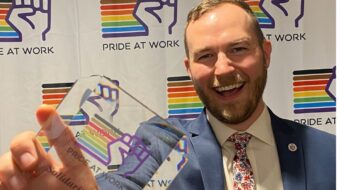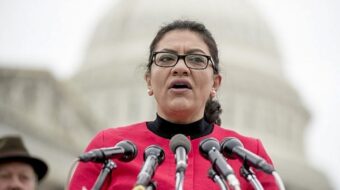Through a June 9 executive order, President Obama established the White House Rural Council to develop and implement an economic strategy in the country’s rural communities.
In the signing ceremony, Obama said, “Strong rural communities are key to a stronger America. That’s why I’ve established the White House Rural Council to make sure we’re working across government to strengthen rural communities and promote economic growth.”
White House Councils are advisory bodies for the President on key matters such as the economy, drug policy, the environment, healthcare matters and so on. A president creates such an advisory body in order to institutionalize the executive branch’s interest in that subject matter, ensuring that succeeding presidents will focus on the matter.
In addition to the Rural Council, President Obama established the White House Council on Women and Girls, Council on Community Solutions, Council on Jobs and Competitiveness and the Middle Class Task Force, which links several advisory councils and White House agencies together.
Department of Agriculture Secretary Tom Vilsack described the President’s action to create the Rural Council as “an unprecedented commitment to rural America.”
“This administration has already made historic investments in rural America,” Vilsack said. “People are already seeing those investments with expanded broadband access, with improved healthcare opportunities, with a commitment to infrastructure and transportation facilities.
But because more needs to be done, he added, the creation of the Rural Council brings a sharper focus on the issues facing rural communities.
Government statistics indicate that while the rural unemployment rate has seen large declines in the past few months, it remains higher than the national unemployment rate overall. Additionally, rural poverty is higher than the national average and rural wages are significantly lower than in urban areas.
The goal of the council will be to develop relationships among government, non-profits, and business to build investments in small towns and rural communities to expand economic opportunities, Vilsack explained.
The council will also discuss ways to deal with environmental issues particular to rural communities. “While rural communities face unique environmental challenges, they’re also leading the way in clean, sustainable solutions to help us meet their needs and our 21st century energy challenges,” EPA Administrator Lisa P. Jackson said.
Department of Interior Ken Salazar added that the Interior Department is facilitating solar and wind energy projects that are adding significantly to the energy grid and creating jobs, mostly in rural communities.
Land conservation and national parks projects also create jobs, protect the environment, and provide healthy recreational space. The Rural Council will also advise on protecting the water supply and providing clean water to the country’s agricultural sector, he explained.
An added focus of the council will be on the 565 federally recognized American Indian tribes, Salazar said. The goal will be “to help create jobs and build safer communities in Indian Country.”
The Obama Administration says its goal of modernizing infrastructure will provide broadband access to 10 million Americans, expand educational opportunities for students in rural areas and provide affordable health care.

MOST POPULAR TODAY

High Court essentially bans demonstrations, freedom of assembly in Deep South

Zionist organizations leading campaign to stop ceasefire resolutions in D.C. area

U.S. imperialism’s ‘ironclad’ support for Israel increases fascist danger at home


UN warns that Israel is still blocking humanitarian aid to Gaza






Comments